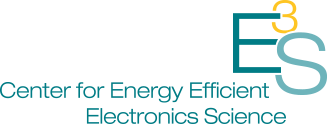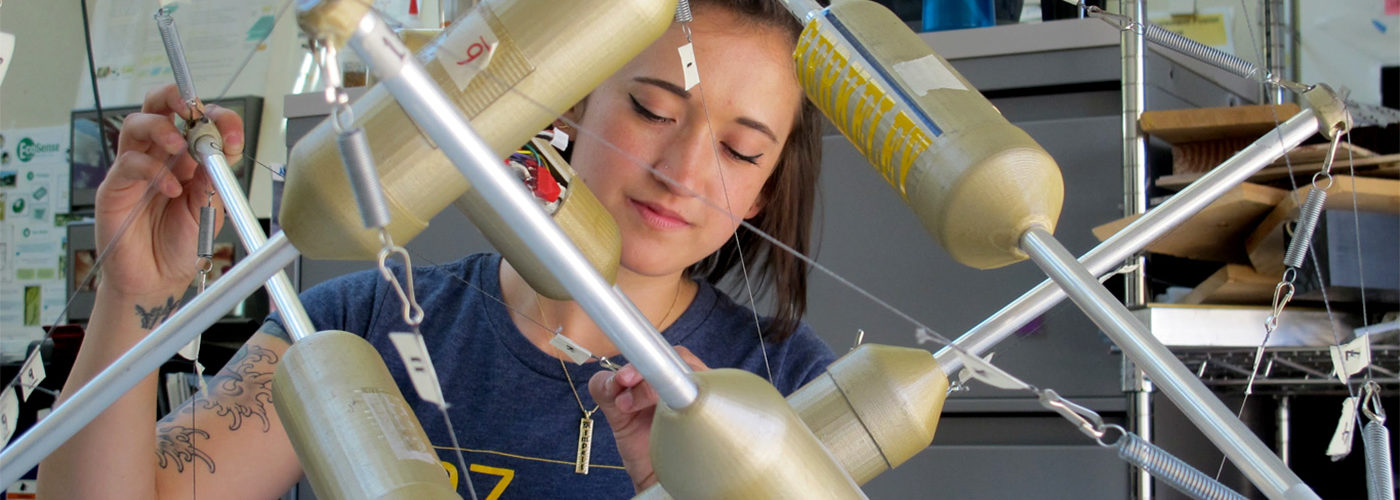Mission
The Center for E3S employed a multi-faceted approach, including research, education, outreach, and knowledge transfer activities, with the goal to revolutionize the electronics industry by developing next-generation, highly energy-efficient electronic systems.
Recent advancements in cloud computing, social networking, mobile internet and data analytics have driven a rapid growth in the demand for information processing speed and bandwidth. This growth is accompanied by increasing importance of wireless sensor swarms, body-centered networks, data centers and servers, and supercomputers. Information processing is consuming a significant fraction (4%) of the total electricity production in the U. S., with a dramatically increasing growth tendency. Moreover, the high level of energy consumption of electronic systems requires high-power batteries and limits mobility over extended periods of time. However, at the most fundamental level, the energy used to manipulate a single bit of information is currently about one hundred thousand times greater than the theoretical limits. In order to address this issue, there has been a critical need for fundamental and conceptual breakthroughs in the underlying physics, chemistry and materials science that form the foundation of information-processing technologies.
The E3S Central Mission
The central mission of the Center for E3S is to develop new switching concepts that approach these fundamental limits and create engineering solutions for low-energy electronic devices, circuits and systems for digital information-processing technologies.
The Center for E3S investigated revolutionary concepts and scientific principles enabling transformative and fundamentally new approaches for digital-information processing with a radical reduction in energy usage. This goal was pursued through education of a diverse generation of scientists, engineers, and technicians to be the future leaders, researchers, educators, and workers of low-energy consumption device science and technology.
The Center’s Progress
Code of Ethics
In the conduct of all its programs and activities, the Center for E3S strives for excellence, integrity, effectiveness and efficiency. The Center’s faculty, students, staff and other participants commit themselves to enable the achievements of these goals by acting professionally and ethically consistent with the Center’s Code of Ethics as well as all applicable organizational policies and practices of ethics of their “home” institutions. Read the full E3S Code of Ethics >>
Governance
2020 Executive Committee
- Eli Yablonovitch, Chair
- Jeffrey Bokor, Vice Chair
- Michael Bartl
- Vladimir Bulovic
- Tsu-Jae King Liu
- Ming Wu
- David Zubia
- Kedrick Perry
- Nicole McIntyre
2020 Industrial Research Board
- Nerissa Draeger, Lam Research
- Paul Solomon, IBM
- Stan Williams, HP Enterprise (retired)
- Ellie Yieh, Applied Materials
- Uygar Avci, Intel
2020 External Advisory Board
- Paolo Gargini (Chair), ITRS
- Sam Bader, Argonne National Laboratory
- Eun-Woo Chang, Educom LLC
- Elsa Garmire, Dartmouth College
- John Heritage, University of California, Davis
- Diane Rover, Iowa State University
- Thomas Theis, IBM (retired)

